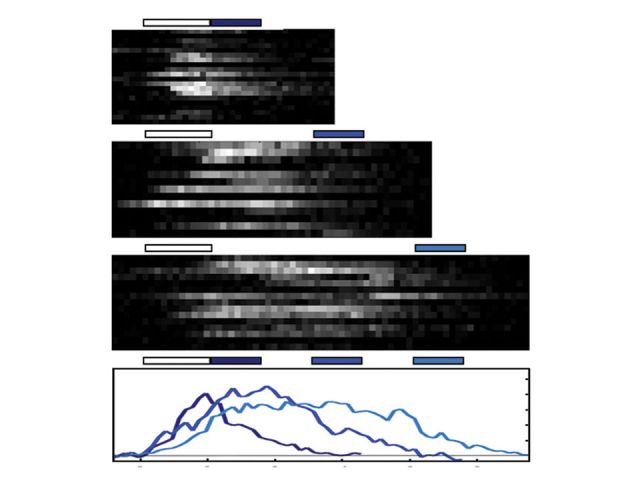
Encoding of sensory information in short-term memory
Short-term memory, the ability to maintain information over brief time scales, serves as the foundation for a broad range of cognitive abilities. For example, in order to read this sentence, you not only need to process each word as it is being read, but you must also remember the words that preceded it in the sentence. Of course, short-term memory is not only necessary for reading, it is also essential for a wide range of cognitive abilities in which perception and action are separated in time (e.g., navigation, decision making, goal-directed action).
Despite the importance of short-term memory for everyday cognition, the precise neural circuitry supporting the maintenance of information in short-term stores is poorly understood. To advance our understanding, my lab takes advantage of 2-photon calcium imaging and optogenetic approaches to measure and manipulate the activity of genetically-defined neurons in behaving mice.